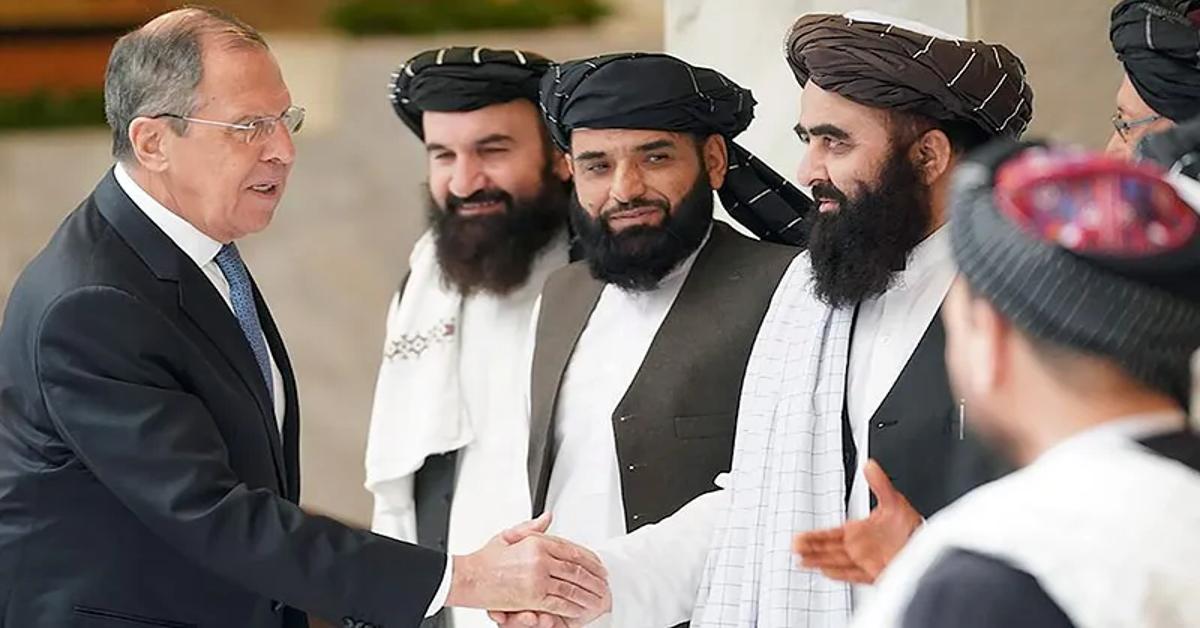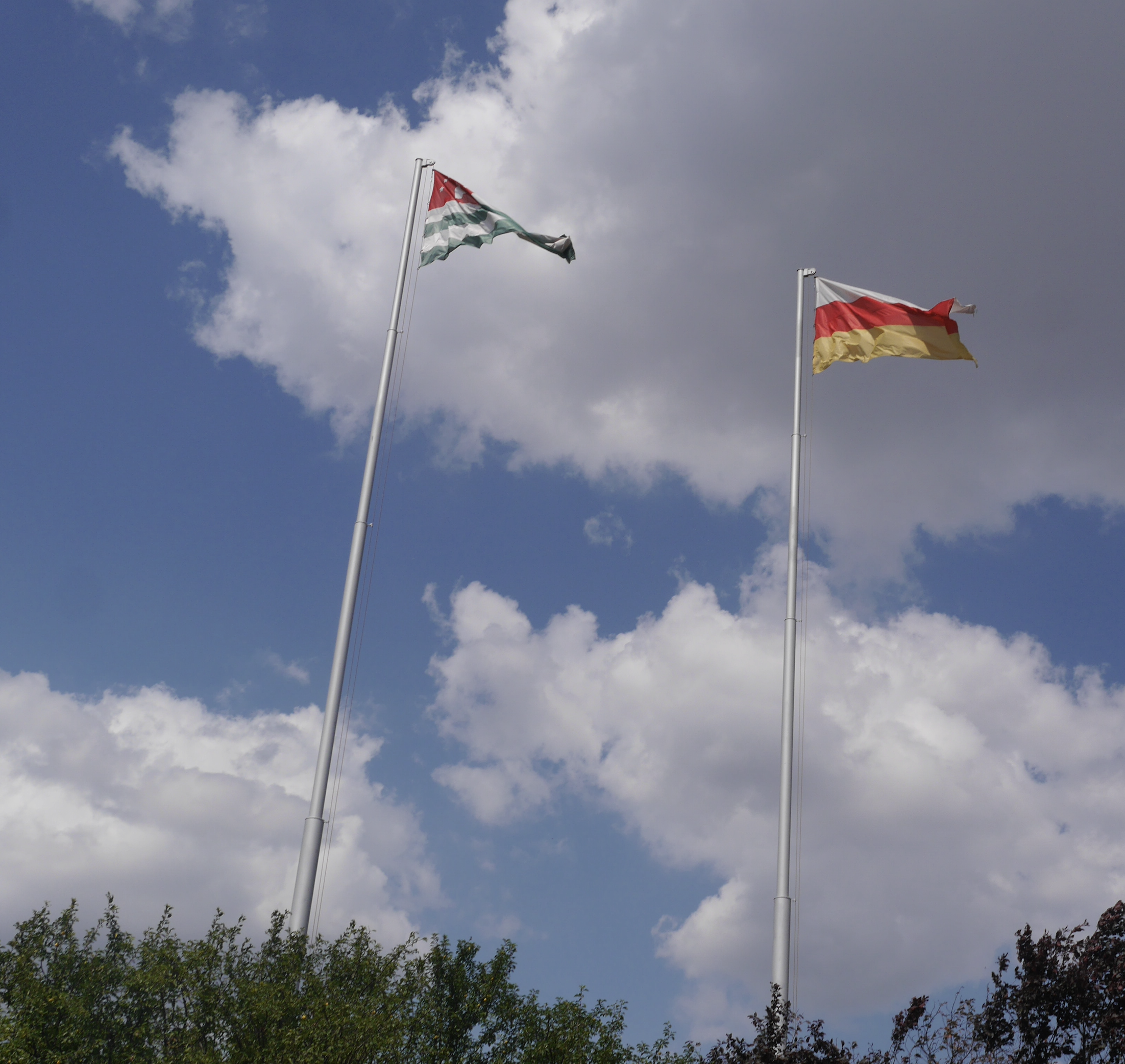
Kremlin to Remove Taliban From List of Terrorist Organizations
Kremlin to Remove Taliban From List of Terrorist Organizations
Executive Summary:
- Moscow announced that it plans to remove the Taliban from its list of terrorist organizations to normalize relations with Afghanistan’s Taliban-led government to combat terrorism in the region.
- Russia sees the Taliban as its best partner to counter the threat from the Islamic State in Khorasan Province (ISKP), which it views as a more imminent threat to regional stability than the Taliban itself.
- Russia frames its ties with the Taliban as a humanitarian response to Afghanistan’s crisis, pledging essential aid to mitigate criticism despite international concerns over the Taliban’s human rights violations, especially regarding women’s rights.
On October 4, the Russian Special Presidential Representative for Afghanistan, Zamir Kabulov, revealed that Moscow has decided to remove the Afghan Taliban from its list of terrorist organizations. Kabulov explained, “The [Russian] Foreign Ministry, jointly with the FSB [Russian Federal Security Service] and several other Russian agencies, is putting the finishing legal touches” on this process, and the Kremlin has already approved this decision (TASS, October 4). Russia designated the Taliban movement as a terrorist organization in 2003 following its aiding of Chechen separatists in the early 2000s, and Moscow’s relations with the movement have evolved since (Lenta.ru, May 29). Moscow’s removal of the Taliban movement from its list of terrorist organizations is an important move to normalize its ties with the current government in Kabul. Even though Moscow has not yet recognized the Taliban government in Afghanistan, its embassy in Kabul has remained open since the takeover of Afghanistan by the Taliban in 2021, following the withdrawal of US forces after two decades of conflict (Dawn, July 2; Daryo, October 4).
Moscow’s removal of the Taliban from the list of terrorist organizations and dropping sanctions against the group would pave the way for the normalization of its relations with the Taliban government, which is still not recognized by any country in the world. Recent statements from the top Russian leadership make it clear that the Kremlin is inching closer to official recognition of the Taliban government. As Russia is further isolated from the world due to its war against Ukraine and Western sanctions, it must look for alternative partners, and working with the Taliban will open new doors for Russia in the Central and South Asian regions to combat terrorism and expand its influence.
While speaking at a meeting on October 4 with his Afghan counterpart Amir Khan Muttaqi in Moscow, Russian Foreign Minister Sergei Lavrov urged for holding pragmatic dialogue with the Taliban government in Kabul. He said, “The United States disregards international criticism of its actions and continues to illegally hold Afghanistan’s national assets while maintaining strict sanctions against its banking sector,” emphasizing that the West is “pushing the situation in Afghanistan into a dead-end.” He called on Western countries to lift sanctions on the Taliban and supported Kabul’s fight against terrorism (Russian Foreign Ministry, October 4).
Russian security officials consider the Taliban as a partner for their ongoing war against the Islamic State in Khorasan Province (ISKP), which claimed responsibility for the March 22 attack on Crocus City Hall near Moscow (Dawn, March 23; see EDM, March 26, 28, July 29). ISKP has emerged as a more imminent threat to regional peace, and in its own security interest, Moscow is working on a strategy to counter the ISKP. On October 4, FSB Director Alexander Bortnikov said, “The Taliban is ready to fight the most dangerous wing of the Islamic State, ISKP, which is still getting material support from the West, which uses the terrorist group’s capacity to carry out subversive false-flag operations on our soil” (TASS, October 4). Moscow’s recent steps toward normalizing ties with the Taliban are part of its strategy to forge greater cooperation with the main adversaries of ISKP (Radio Free Europe/Radio Liberty, May 5).
In July, Russian President Vladimir Putin called Afghanistan’s Taliban movement an ally in the fight against terrorism and urged the international community to pay attention to the issues the war-torn nation is facing today. Putin also revealed that Moscow had received signals from Kabul indicating the Taliban’s willingness to cooperate in the global war against terrorism. “Generally, we must proceed from the fact that the Taliban controls power in the country. In this sense, the Taliban are certainly our allies in the fight against terrorism because any acting government is concerned with the stability of its administration and the state it governs,” Putin said (Kremlin.ru, July 4).
When the Taliban returned to power in 2021, it sought to use Russia as an intermediary to help circumvent UN sanctions. At that time, Russia stated that the issue of lifting UN sanctions on the Taliban was not up for discussion (RBC, September 24, 2021). In July 2024, however, Russian envoy to the United Nations Vasily Nebenzya said, “[The Taliban] are the de facto authorities [in Afghanistan]. [They] are not going to stop, and we’ve been saying consistently that you must recognize this fact and deal with them as such because, whether you like it or not, this movement is running the country now. You cannot simply ignore that” (Euractiv, July 2). The steep decrease in Russia’s international standing since 2021 is a likely contributor to its progression of accepting normalization with the Taliban.
Some Russian officials are highlighting the plight of Afghan people in Moscow’s move toward normalization with the Taliban. The international community criticizes the Taliban over their violation of human rights, particularly women’s rights. Since the takeover of Afghanistan in 2021, Afghan women have come under increased repression (BBC Russian Service, August 28). Presently, Afghanistan is the only country in the world where girls are banned from studying beyond the sixth grade. Taliban have put restrictions on women’s rights to education, employment, and participation in public life (Human Rights Watch, September 17). In his October 4 meeting, Lavrov emphasized how the socioeconomic situation in Afghanistan remains critical, and Moscow plans to “continue to make regular deliveries of food and basic necessities to Afghanistan” (Russian Foreign Ministry, October 4).
By framing its approach in humanitarian terms, Moscow seeks to portray its actions as support for the Afghan people rather than an endorsement of Taliban policies, thus countering anticipated criticism from the international community. The emphasis on humanitarian aid also underscores Russia’s broader goal to build influence in the region, aligning itself with Afghanistan’s immediate needs while positioning itself as a counterpoint to Western approaches. Today, the Moscow-Taliban romance indicates rapidly changing geopolitical realities and shifting regional alliances. While Moscow needs the Taliban’s cooperation to counter the ISKP threat, the Taliban government needs Russia’s recognition and support to overcome domestic challenges the war-battered country faces on economic and security fronts.


